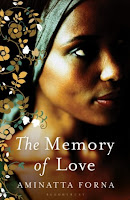The band which was formed by a group of Sierra Leonean musicians when they lived in a refugee camp in Guinea during the conflict, played for over two hours, giving us a taster of their various music styles, from roots reggae to Sierra-Leonean palm-wine music, to soca, to soukous. Although the Bob Marley and Lucky Dube influence is evident, the band is authentically Sierra Leonean and their music although heavily influenced by these great stars does not imitate anyone.
The band members represent four ethnic groups in Sierra Leone, the Mende, Temne, Loko and Krio and they sing in those four languages. They play a range of instruments from the traditional african bongo drum to the shegure (a traditional Sierra Leonean instrument made from a calabash and stringed beads) while at the same time mastering conventional instruments like the acoustic guitar, keyboard and the drums.
Their talent is evident but more so what makes them an enjoyable band to watch live is their energy and their desire to entertain. You could tell that they were enjoying themselves as much as the audience, even more so. Each band member had their turn doing some dance moves reminiscent of a Soul train line. Black Nature, being the youngest was the most impressive with his upside down gyrate - you have to see it to believe it.
The band is finishing their tour of the USA, with perfomances in Massachusetts and Colarodo before heading to Europe. Catch them if you can, you will not be disappointed. Alternatively you can pick up their new album which has received excellent reviews: Rise & Shine
USA tour dates
Sun May 29 The Beachcomber Wellfleet, MA
Sat Jun 04 Red Rocks Amphitheatre - Opening for DISPATCH, Morrison, CO
Sat Jun 11 Johnny D's Somerville, MA
Europe tour dates
Fri Jun 17 Festival Sol Mestizo Albacete, Spain
Sat Jun 18 Festival Mundial Tilburg, Netherlands
Sun Jun 19 Africa OyŽ Festival Liverpool, United Kingdom
Wed Jun 22 World Refugee Day Celebrations Hull, United Kingdom
Fri Jun 24 La Nuit Africaines Ottignies, Belgium


